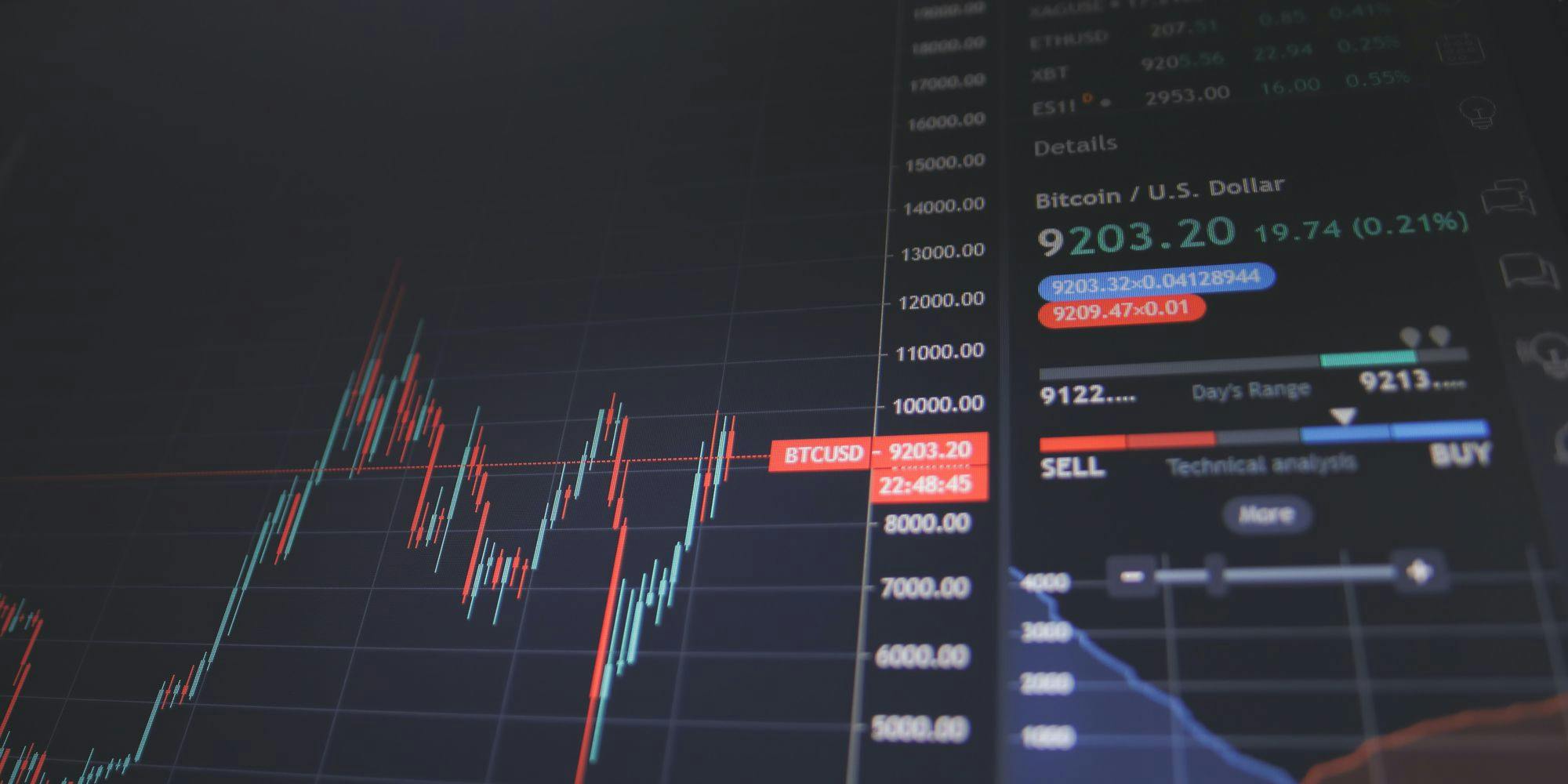
The Global Investment Landscape
As an investor based in the UK, expanding your investment portfolio to encompass international markets can offer a wealth of opportunities. In this section, we'll delve into understanding international stock markets and explain why analysing these markets is crucial for your investment strategy.
Understanding International Stock Markets
International stock markets refer to the collection of exchanges where shares of companies from around the globe are traded. From the New York Stock Exchange (NYSE) to the Tokyo Stock Exchange (TSE), international stock markets provide a platform for investors to buy and sell shares in a multitude of global companies.
Broadening your portfolio to include international stocks can enhance your diversification, potentially reducing risk and increasing the scope for returns. You can access international markets through various financial instruments, such as international ETFs, international mutual funds, or directly investing in foreign stocks.
It's important, however, to understand that each international market is unique, with its own set of economic, political, and regulatory conditions influencing stock performance. For instance, investing in emerging economies might offer high growth potential, but it might also come with increased volatility and risk.
Why Analyse International Stock Markets
International stock market analysis forms a crucial part of your investment decision-making process. It helps you understand the dynamics of various markets, identify potential investment opportunities, and assess the risks associated with these markets.
Analysis can provide valuable insights into the economic health of a country, the performance of its industries, and the stability of its political climate, all of which can impact stock performance. For instance, if you're considering investing in Asian markets, you would need to analyse factors such as economic growth rates, currency stability, and geopolitical tensions.
Moreover, by analysing international markets, you can better diversify your portfolio, spreading your investments across different geographical regions and sectors. This can help reduce the risk of your portfolio being severely impacted by a downturn in any one market. For more on diversification, see our article on diversifying internationally.
In conclusion, international stock market analysis is a key component in navigating the global investment landscape. It equips you with the knowledge to make informed investment decisions, manage risks, and potentially unlock opportunities in international markets. In the following sections, we'll explore the key international stock markets, how to analyse them, and the risks and rewards of international investing.
Key International Stock Markets
To perform a comprehensive international stock market analysis, you need to familiarise yourself with the key global markets. Here, we delve into the three main international stock markets - the U.S., Asian, and European markets.
The U.S. Stock Market
The U.S. stock market can be a lucrative arena for UK investors. It is the largest and most liquid in the world, hosting some of the largest multinational corporations. The key stock exchanges include the New York Stock Exchange (NYSE) and the Nasdaq.
The U.S. market often sets the tone for global markets due to its size and influence. It offers a diverse range of investment opportunities, from technology giants to small-cap innovative firms. To explore more about investing in U.S. stocks, check our guide on investing in foreign stocks.
The Asian Stock Markets
The Asian markets encompass a diverse range of economies, from developed markets like Japan to emerging markets like India and China. These markets present unique opportunities for growth and diversification, given the rapid economic development and increasing consumer spending in these regions.
Key stock exchanges in Asia include the Tokyo Stock Exchange, Shanghai Stock Exchange, and Hong Kong Stock Exchange. Each market has its own unique characteristics and economic indicators, making an understanding of regional economic and political contexts crucial. For a deeper understanding of this region, visit our guide on investing in Asian markets.
The European Stock Markets
The European markets offer a blend of developed economies like Germany and France, as well as emerging markets in Eastern Europe. Key exchanges include the London Stock Exchange, Euronext, and the Frankfurt Stock Exchange.
The European markets are well-regulated and offer a wide range of investment opportunities, from blue-chip companies to exciting start-ups. The region's economic health often hinges on policy decisions made by the European Union, making political analysis a key aspect of investing here. For more insight into European markets, visit our guide on investing in European markets.
Understanding these key international markets is the first step in your global investing journey. From here, you can delve deeper into market-specific analysis and start diversifying your portfolio across regions, sectors, and asset classes. Stay tuned for our next section on how to analyse these international markets for informed investment decisions.
Analysing International Stock Markets
When it comes to international investing, it's crucial to perform a thorough international stock market analysis. This analysis should encompass various factors, such as economic indicators, political factors, and market trends.
Economic Indicators
Economic indicators are essential for understanding the health of an economy and predicting future economic trends. These indicators can provide valuable insights into potential investment opportunities in foreign stock markets. Some key economic indicators to consider include:
- Gross Domestic Product (GDP)
- Interest Rates
- Inflation Rates
- Employment Data
- Trade Balance
By monitoring these indicators, you can identify economies that are growing or contracting, and adjust your investment strategies accordingly. For example, a country with a rising GDP and low inflation may present attractive investment opportunities.
Political Factors
Political stability plays a crucial role in the performance of stock markets. Political events such as elections, policy changes, and international relations can significantly impact an economy and its stock market. Therefore, it's essential to keep an eye on political developments when analysing international stock markets.
For instance, changes in trade policies can affect the profitability of companies that rely heavily on exports or imports. Likewise, political instability can lead to market volatility, which can impact your investments. Hence, staying informed about political events can help you make more informed investment decisions.
Market Trends
Identifying and understanding market trends is another crucial aspect of international stock market analysis. Market trends can provide insights into the performance of specific sectors, industries, or companies. This information can help you identify potential investment opportunities and risks.
For example, a growing trend in renewable energy might signal investment opportunities in international renewable energy companies. Conversely, a declining trend in a particular sector may indicate potential risks.
Analysing market trends involves evaluating historical data and using various analytical tools and techniques. It's also important to consider both short-term and long-term trends to gain a comprehensive understanding of the market.
In summary, economic indicators, political factors, and market trends are key components of international stock market analysis. By considering these factors, you can make more informed investment decisions and better manage your international investment portfolio. Remember, investing internationally involves risks, and it's important to diversify your investments to mitigate these risks. For more tips on international investing, check out our article on diversifying internationally.
Risks and Rewards of International Investing
As a UK investor considering expanding your portfolio globally, it's crucial to understand the potential risks and benefits of international investing. Your decision to invest in foreign markets should be based on thorough research and a comprehensive understanding of the global investment landscape.
Potential Risks
Investing in international stock markets presents several risks that you need to consider.
1. Market Volatility: International markets can be more volatile than domestic ones. This volatility can result from various factors, such as economic instability, political unrest, and changes in market regulations.
2. Currency Risk: As an international investor, you will be subject to currency risk. This risk arises from the fluctuation in the value of foreign currencies against the British pound.
3. Regulatory Risk: Different countries have different rules and regulations for foreign investors. These can change unpredictably and have a significant impact on your investments.
4. Information Asymmetry: In some countries, access to reliable and timely information can be limited. This can make it challenging to make informed investment decisions.
Despite these risks, many UK investors find international investing appealing due to the potential benefits it offers.
Potential Benefits
1. Diversification: International investing allows you to diversify your portfolio beyond the UK market. This can potentially reduce your investment risk and generate better returns.
2. Access to Growing Markets: Investing in international markets provides you with access to rapidly growing economies. This can offer significant growth potential for your portfolio.
3. Sector Exposure: Some sectors may be more represented in certain countries. International investing allows you to gain exposure to these sectors, potentially enhancing your portfolio returns.
4. Dividend Yield: Some international markets may offer higher dividend yields than the UK market, providing an additional income stream for investors.
Understanding the risks and rewards of international investing can help you make informed investment decisions. It's important to conduct thorough international stock market analysis and consider your risk tolerance, investment goals, and time horizon before investing in international markets. For more information on international investing strategies, check our article on international investing strategies.
Strategies for UK Investors
As a UK investor looking to broaden your investment horizon through international stock market analysis, there are several strategies to consider. This section will delve into diversification and asset allocation, currency risks and management, and understanding market correlations.
Diversification and Asset Allocation
Diversification is a fundamental strategy in any investment portfolio. By spreading investments across various geographic regions and asset classes, you can reduce risk and potentially enhance returns. When considering international investments, you may want to include a mix of equities, bonds, exchange-traded funds (ETFs), mutual funds, and real estate investments from different countries and sectors.
This could include investing in international index funds, international real estate investments, or global bond market investments, among others. The key is to balance your portfolio in a way that aligns with your risk tolerance, financial goals, and investment timeline.
Currency Risks and Management
Investing internationally exposes you to currency risk, which is the potential for losses from fluctuations in foreign exchange rates. It's crucial to understand how currency movements can impact your international investments and how to manage this risk.
For example, if you invest in a U.S. stock and the pound strengthens against the dollar, your investment's value in pound terms could decrease, even if the stock price remains unchanged. Therefore, it's important to monitor foreign exchange rates and consider hedging strategies if necessary.
There are various tools and strategies to manage currency risk, such as using derivatives (like futures and options), investing in currency-hedged funds, or maintaining a diversified portfolio with investments in different currencies. You can find more information on investing in foreign currencies here.
Understanding Market Correlations
Market correlation refers to how the price of one asset moves in relation to another. Understanding market correlations can help you in diversifying your portfolio and managing risk.
For instance, if you own shares in both the UK and U.S. markets, and these markets have a high positive correlation, they're likely to move in the same direction. If one market experiences a downturn, the other is likely to as well, which could lead to significant losses in your portfolio.
On the other hand, if the markets are negatively correlated, they're likely to move in opposite directions. If one market falls, the other might rise, potentially offsetting some of the losses.
By understanding these correlations, you can better diversify your portfolio to mitigate the risk of simultaneous losses and potentially enhance returns. Explore more about international investing strategies to deepen your understanding.
In conclusion, while international investing offers potential for higher returns and diversification, it also involves unique risks. Therefore, it's essential to conduct thorough international stock market analysis and devise a thoughtful investment strategy before venturing into foreign markets.
Practical Aspects of International Investing
Once you've understood the basics of international stock market analysis, it's time to delve into the practical aspects of investing internationally. This section will guide you through accessing international markets, tax considerations, and managing time differences and trading hours.
Accessing International Markets
Accessing international markets has become simpler with the advent of online trading platforms. You can invest in foreign stocks directly through these platforms or indirectly via international ETFs and international mutual funds.
| Access Method | Description |
|---|---|
| Online Trading Platforms | Allows direct purchase and sale of foreign stocks |
| International ETFs | Track an index, sector, commodity, or instrument |
| International Mutual Funds | Pool of funds invested in foreign markets |
Explore options like emerging markets investing or investing in emerging economies to diversify your portfolio.
Tax Considerations
When investing internationally, you need to be aware of the tax implications. These can include capital gains tax in the UK and potential withholding tax in the foreign country. It's crucial to understand these tax obligations to accurately calculate your returns and ensure compliance with tax laws.
| Tax Type | Description |
|---|---|
| Capital Gains Tax | Tax on the profit from the sale of assets |
| Withholding Tax | Tax withheld by the foreign country on income |
For a deeper understanding of these tax considerations, seeking advice from a tax professional or a financial advisor can be beneficial.
Time Differences and Trading Hours
As you venture into international investing, managing time differences and understanding foreign trading hours is crucial. The opening and closing times of foreign exchanges can significantly influence the price of stocks.
| Market | Opening Hours (UK Time) |
|---|---|
| US Market | 2:30 PM - 9:00 PM |
| Asian Market | 12:00 AM - 9:00 AM |
| European Market | 8:00 AM - 4:30 PM |
Staying aware of global economic events and market movements can help you optimize your international investment strategy. Explore global investment opportunities to widen your investment horizons.
Remember, international investing is not without its risks. But with careful planning, understanding of market dynamics, and adherence to a well-thought-out investment strategy, you can navigate the international investment landscape effectively.




